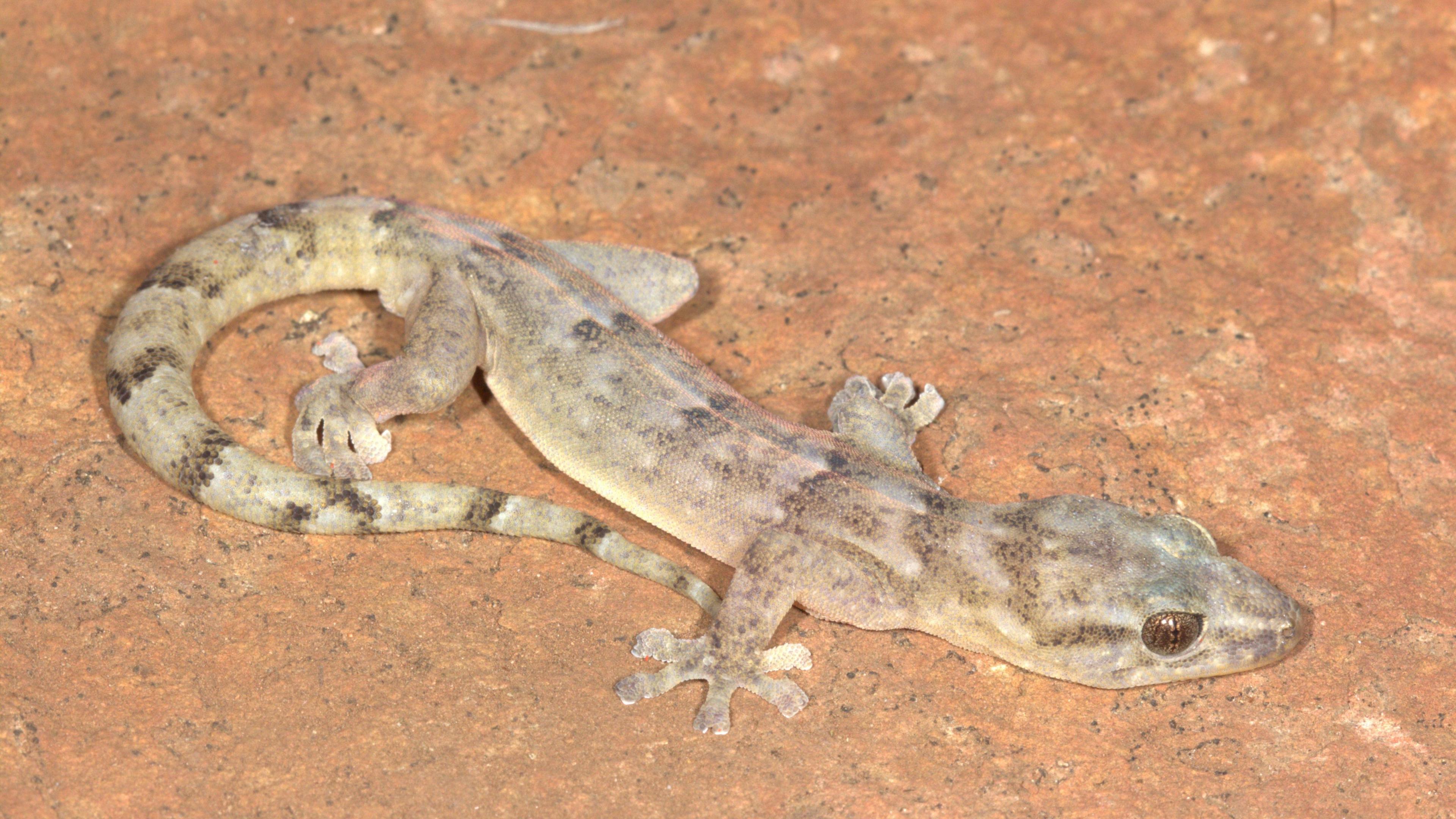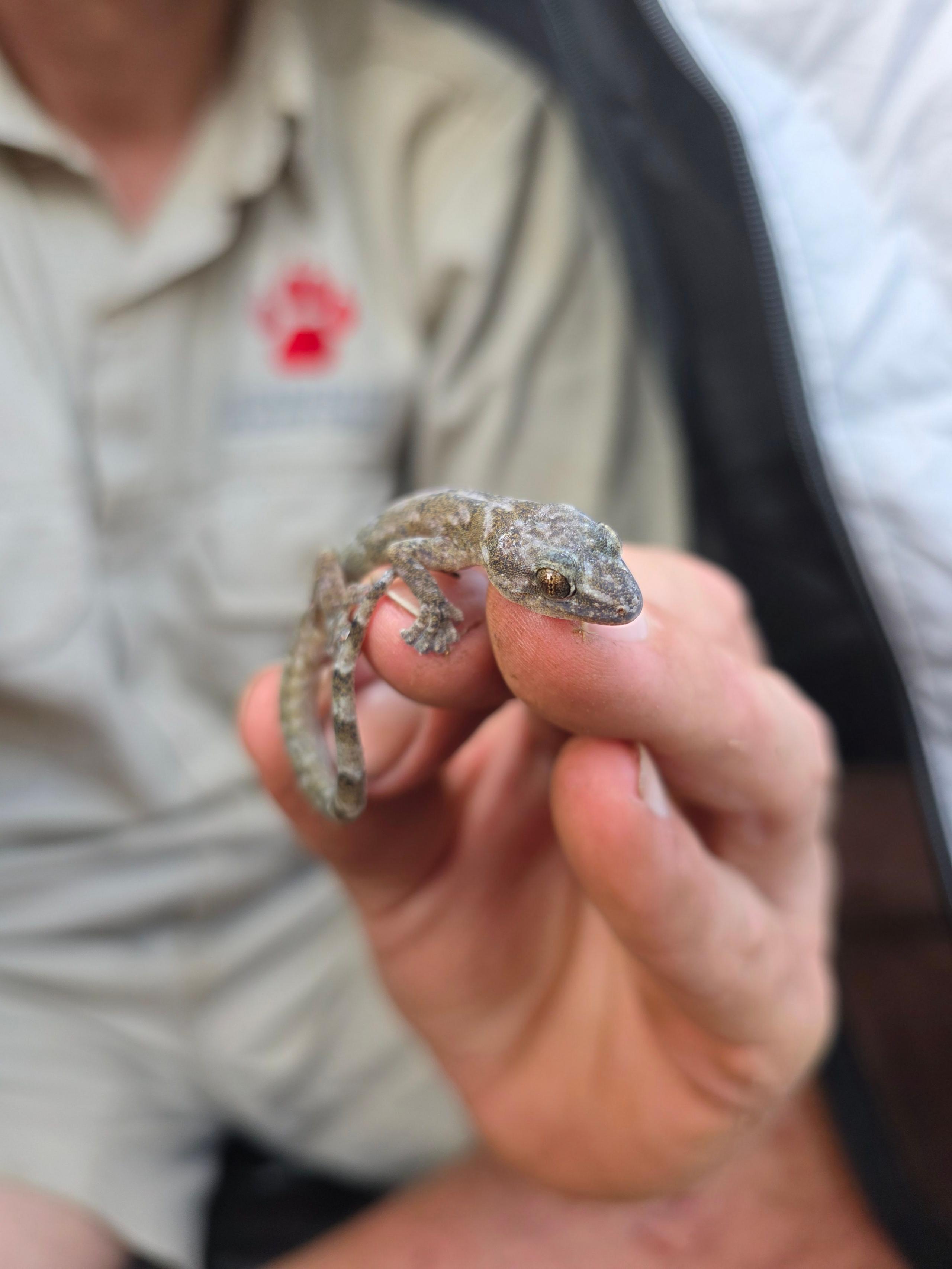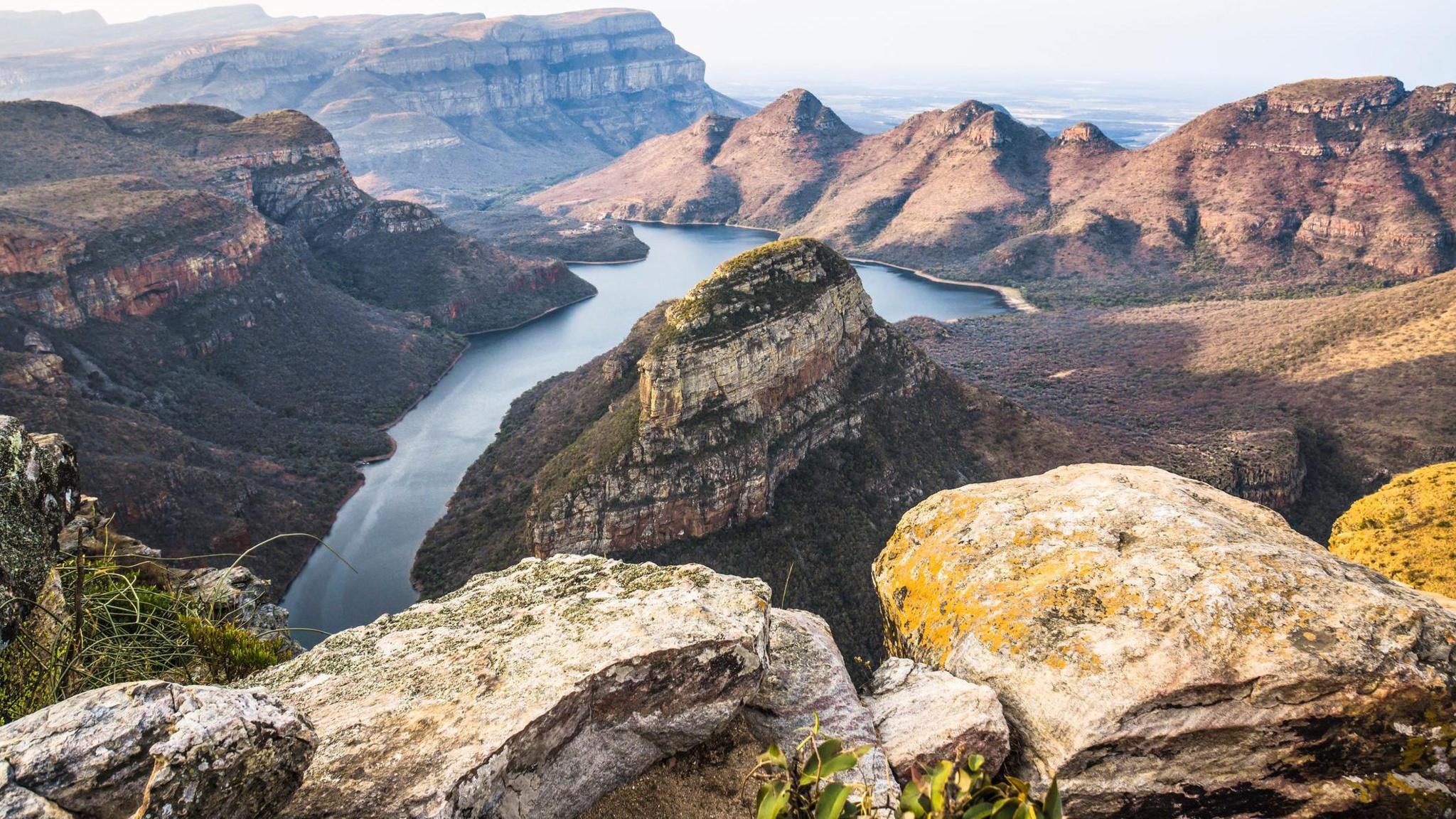Hide-and-Seek Champ: Gecko Found After 33 Years!

Adult female Blyde Rondavel Flat Gecko (Afroedura rondavelica) - one of several individuals that were seen or captured during the expedition.
- Published
Researchers from the Endangered Wildlife Trust have discovered a type of gecko that hasn't been seen in more than 30 years.
Since the Blyde Rondavel flat gecko was identified in 1991, where this little lizard has been hiding has been a mystery.
Now, the Trust says that two of its researchers have found specimens of the mysterious gecko in South Africa.
The researchers discovered it in a remote canyon in after they were dropped off there by a helicopter.
New 'beaky' gecko discovered
- Published12 March 2023
Why was this tiny gecko in a UK supermarket?
- Published30 January 2023
Check out this adorable new species of gecko
- Published6 June 2023

This lizard was was first identified after it was found in a canyon in the Mpumalanga Province in northeastern South Africa in 1991.
Recently, researchers Darren Pietersen and John Davies returned to the same canyon determined to solve the mystery.
In the end, it only took them three days camping on the outcrop to find the geckos.
"And when we did, we were elated to say the least," said Pietersen.
What is a "lost species"?

The gecko was found in Mpumalanga in South Africa
The species until now has been listed as "lost" as it hadn't been recorded for more than 10 years.
However rather than extinct, the lizard has been registered as 'data deficient' by The International Union for Conservation of Nature, the authority on endangered species.
This was because not enough was known to say for sure if it was extinct.
Researcher Darren Pietersen who found the lizard said: "I've always loved the species that others wouldn't study because they're harder to find or obscure."
